Staff writers Alexander Larios and Kevin Cookman came to conquer Austin, Texas for South By Southwest 2019, but quickly found themselves in an uphill battle to out-weird the weirdest town in the US of A. While we continue to pump out SXSW features through the dawn of spring, the fellas have compiled a review roundup of some of the many films they were able to catch.

ALICE
Director: Josephine Mackerras
Genre: Drama
Following in the footsteps of Cummings’ THUNDER ROAD as a South By Southwest Grand Jury Prize winner is Josephine Mackerras’ ALICE, a Parisian fallen-woman tale that seeks to revert the moralist trappings of the past. A less pulpy, more Dardenne’d out retelling of Elizabeth Debicki’s WIDOWS subplot, Mackerras follows the titular Alice as she enters the world of escorting to avoid eviction from her apartment and cushy upper-middle-class lifestyle after her husband cleans out their bank accounts and runs. ALICE is hardly the first film to promote the independent agency of sex work, but it’s kind of like saying “wash your hands before eating”—there is literally no wrong time to say it. Very little is of pressing agency in ALICE; the character nabs her escorting job quite early and incredibly easily, there’s not much of a mental hurdle in embracing it. I just wish there was something, just one thing, new or fresh here. I suppose that ingredient is actress Emilie Piponnier, our protagonist of both sheer perseverance and short-fused patience. Perhaps this is my own distaste and lack of patience for naturalistic cinema speaking, but God, giving her something beyond guilting building owners into extending the rent deadline, crying in frustration, or awkwardly staring doe-eyed during comedic sexual encounters would have been appreciated, something infused with direction, because as the film stands, it mostly just exists in a hovering void. I think the first escorting scene is a riot, Piponnier pitted against a client whose performance turns the interaction into a routine, with both performers able to work off a comic energy that bubbles and builds. The film isn’t much of a dense exploration into the French call girl industry, nor is it much of an interesting character study, it’s a medley of scenes telling a soapy tale with a slightly progressive edge. [Kevin Cookman]
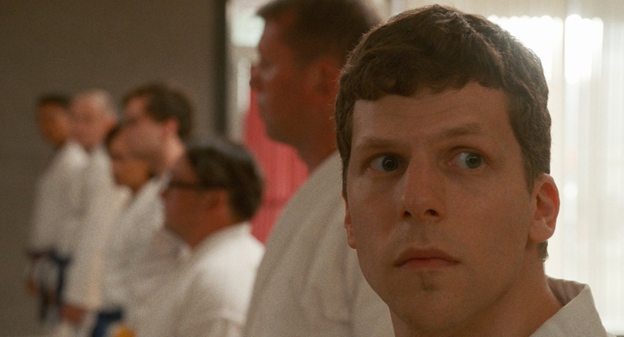
THE ART OF SELF-DEFENSE
Director: Riley Stearns
Genre: Dark Comedy
I get that this is the kind of quirkiness that thrives at SXSW, and by all means it’s a good bit of awkward fun, but it’s not anything we haven’t seen before. Jesse Eisenberg plays a sort-of parody of his previous characters in the neurotic and feeble Casey, who enrolls in his local karate studio seeking to better himself after being viciously assaulted. The studio’s mysterious sensei, played by Alessandro Nivola, sees potential in Casey and thrusts him into a brutal world he was never prepared for. It’s interesting to see that Stearns already has some staples as a director. Casey speaks German and French so there’s that same fascination with language as was present with Stearn’s short film CASQUE, which he made with his then-wife Mary Elizabeth Winstead. In milking all that he can from the cringeworthy tension between his actors, Stearns’ direction comes out as derivative of Lanthimos or the swathe of other independent directors making waves in the same lane. The carnage, too, is handled in much the same way, being swift and scarce but never reaching that sort of Shane Black impact until the very end. But if you’re going to bite anyone’s style it might as well be their’s, right? Some of the writing goes into above-average territory and I do plan to recite Eisenberg’s final speech to anyone who dares stand in my way. [Alexander Larios]

BOYZ IN THE WOOD
Director: Ninian Doff
Genre: Comedy
An outrageous riot perfectly suited for the midnight crowd, BOYZ IN THE WOOD (though it has little to do with Singleton’s classic) follows four young lads attempting a Duke of Edinburgh challenge to traverse the unforgiving Scottish Highlands, where many have recently gone missing. The group consists of a troublemaking threesome, who are given the challenge for rehabilitation purposes after exploding a public toilet, plus one goody-goody. There’s pyromaniac and leader Dean, played by Rian Gordon, who’s intent on settling more things ablaze, whether it be to smoke it or merely watch it burn. Fork enthusiast Duncan, played by Lewis Gribben, is surprisingly resourceful when his plans don’t result in absolute destruction. The brown and proud rising SoundCloud star DJ Beatroot, played by Viraj Juneja, joins them, spitting straight fire through their journey. The goody-goody in question is Samuel Bottomley’s Ian, who obviously acts as the moral center of the group in sticking with the challenge, but eventually earns the rest of the boys’ favor once they confront danger, of which there is plenty. The expedition has the boys facing an insane band of human-hunters lead by Eddie Izzard, munching on hallucinogenic rabbit turds by the handful, fooling a bumbling police force, and wrecking much of the highlands beyond repair, all to the tunes of Danny Brown and Run the Jewels. This one is a riot that, despite the near unintelligible accents, I hope to god gets a release here in the states. [Alexander Larios]
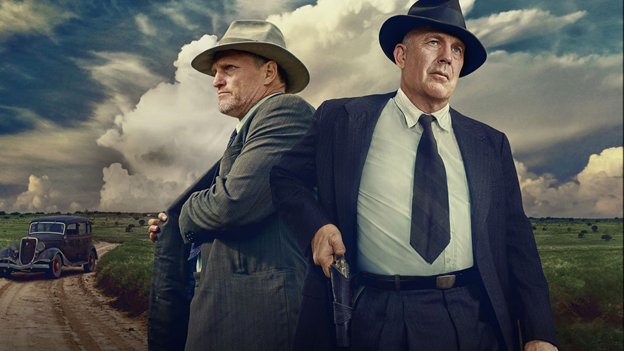
THE HIGHWAYMEN
Director: John Lee Hancock
Genre: Drama
Despite showing the law’s side of the Bonnie & Clyde saga, THE HIGHWAYMEN stays relatively safe. It’s a space Hancock shares with the streaming platform where this film will reside. Both have multiple times taken a true-to-life premise worthy of being adapted and eventually made a much less interesting onscreen result. Kevin Costner and Woody Harrelson play Frank Hamer and Maney Gault, two former Texas rangers who are tasked by then Governor Ma Ferguson, played by an underutilized Kathy Bates, to apprehend Bonnie and Clyde. In 1934 the newly formed and technologically advanced FBI race the two former rangers, both following Bonnie and Clyde’s trails. Plus, given it’s the golden age of print media, the public get a whiff of the crime duo’s antics and herald the crime duo as bank-busting folk heroes. Sadly, the film quickly sells these concepts short, answering every big question with a cold, faceless, Eastwood-esque reverence of law and order. Not even Costner and Harrelson’s dynamic is as good as it could have been, with Woody being sidelined as comic relief. Some moments work, such as when Harrelson finally shines in a restroom fight scene, though the scarce action is never as cool as it thinks it is. As the film continues, THE HIGHWAYMEN retreads territory retaining that self-righteous resolve that leaves us stuck with a boring chore of a film that eventually funnels itself into the 1967 classic. [Alexander Larios]
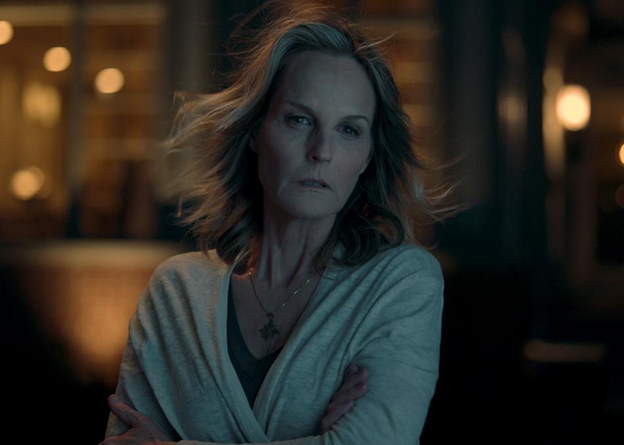
I SEE YOU
Director: Adam Randall
Genre: Horror
Opening with a killer drone shot patrolling down a Lake Erie road, Adam Randall’s eerie I SEE YOU matches its surveillance horrors with its tech. The drone footage really is something—unlike the bevy of tired overhead landscape shots we’ve been adjusted to expect, Randall is more interested in using the device as a floating steadicam, able to glide through scenes with more freedom than a crane allows. Starring a sleepy Helen Hunt, I SEE YOU never gets the lead performance it needs to thrive, its rotating cast of characters anchored by Jon Tenney, a detective hot on the case of a copycat kidnapper terrorizing his town. It’s a performance that’d be of close-to-zero note in a more lively ensemble, but relative to his cohorts, the guy is firing on all cylinders. The first half of the film plays pretty straightforward as a dumber (if you can believe it), but more supernatural, True Detective beast, but Randall record-scratches the movie midway with a stylistic and POV shift so radical that you can feel an electrical surge in the audience. “This is so fucking cool.” The effects are temporary. In an effort to avoid spoilers, I’ll say that both I SEE YOU and fellow 2019 genre exercise, THE STANDOFF AT SPARROW CREEK, sure carry a rotten streak of entire enterprises nigh capsized by an edgelord white teen. Though the perspective switch is inspired, it results in having to rewatch the same so-so mystery from the very beginning, leaving you counting the minutes until the film finally catches up with itself and moves along with the whole messy ordeal. By the time you get there, with the explanations that’ve been handed to you, there’s a sure shot you may not bear the patience to care for where it all ends up. But hey, you get to see a man piss on another man’s dick—I SEE YOU may have a rocky execution, but it’s got exploitation hallmarks to hold it down. [Kevin Cookman]
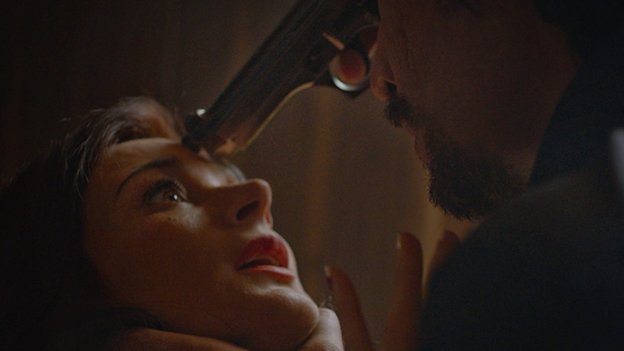
LA MALA NOCHE
Director: Gabriela Calvache
Genre: Drama
This bleak Ecuadorian prostitute drama definitely has good intentions. LA MALA NOCHE, or its English title, THE LONGEST NIGHT, attempts to shed light on the real-world sex trade that has plagued South America, a problem whose human toll is arguably greater, but is eclipsed by the drug trade, both satiating the north’s appetite. Though these problems are important and large in scope, the film is contained almost to a fault. Noëlle Schonwald plays Dana, an opioid-addicted prostitute who regularly gets abused by her clients, her pimp Nelson, and his goons. The film only briefly dabbles in introspective thoughts that come with the job like VIVRE SA VIE, but leans instead into neorealist heartstring pulls, giving Dana too little autonomy too late. She befriends a client in Julián, played by Cristian Mercado, whose job as a doctor allows him to help Dana out after she’s roughed up. There’s some tension when they’re intimate as Julián’s marriage is on the line, but he eventually and futilely becomes her male champion *eye roll*. In the logline we’re told Dana “turns to” prostitution, but we’re never given any hint of where that turn came from, nor how she became drug-addicted or even came in contact with Nelson. The most exposited part of her past is given through one-sided phone calls with her daughter, the discontinuing of which causes her to finally retaliate. While it’s rooted in reality, LA MALA NOCHE doesn’t hesitate in being as exploitative and emotionally manipulative as it can be. It’s troubling to me as a Latino that what’s heralded as important cinema is a borderline caricature such as this. A much more fulfilling and informative experience would be to engage in one of the many documentaries or reports on the subject. [Alexander Larios]
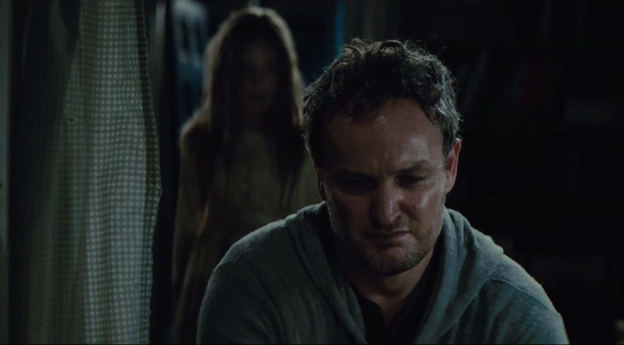
PET SEMATARY
Director: Dennis Widmyer and Kevin Kolsch
Genre: Horror
With each new iteration of his intellectual property, it’s becoming increasingly apparent that Stephen King kind of sucks. This version does little-to-nothing to separate itself from the ultra-schlocky original, which in turn reveals how dumb it really was in the first place. Jason Clarke employs his perpetually bewildered baby blues as Louis Creed, a surgeon whose profession gives him the atheistic skepticism of the Foucaultian medical gaze, who moves his family into a ranch in rural Massachusetts to “slow down.” Amy Seimetz plays his wife Rachel, who is haunted by the memory of her invalid sister, and is thus hesitant to teach their young daughter Ellie, played by Jeté Laurence, about death. The only real standout has to be the legendary John Lithgow playing Jud, an old resident of the area who welcomes the family and tells them of the mysterious animal graveyard on their property that supposedly brings the town’s furry friends back to life. When the family’s beloved cat Churchill dies, Jud and Louis bury him in said cemetery to keep the truth from Ellie. Churchill comes back, as cute as he was before, but this time a little more mischievous than a cat normally should be. Sadly, what henceforth conspires is a gaggle of predictable scares and lackluster violence. Clarke, as usual, almost never ventures away from his comfort zone. The cat is cute, though. If anything go for Lithgow, one of the greatest actors ever, cuddling with one of the cutest cats ever. [Alexander Larios]

ROMANTIC COMEDY
Director: Elizabeth Sankey
Genre: Documentary
Elizabeth Sankey’s analysis of the “romantic comedy” genre is certainly an odd fit for festival programming; for one, this really isn’t a documentary, more so a video essay akin in form and length to what you can find on YouTube right this instant. With full aid of a cavalcade of film clips, Sankey narrates, with infrequent support from some mystery commentators, and guides us through her thesis that romantic comedies are…. Problematic! She’s right, and her illustrative examples drive the point home, until a misplaced ending that dusts off all dirt that had just befallen on the genre’s shoulders; it’s like if SUPER SIZE ME ended with a gleeful mukbang in the Times Square McDonald’s. It’s the most tepid form of political interaction—highlighting the nefarious faults of a policy ad nauseam, only to revert to full-on celebration of the comfort of a status quo. I don’t think “policy” is an exaggerated term. Sankey herself touches on the behavioral effects of the genre, presenting toxic displays of intimacy and vulnerability as model, so to see her ultimately allow the genre to walk away scot-free with an elongated movie-magic outro questions the film’s worth. What’s the point of any of this if Sankey, too, finds herself swooned by the films’ snake oil? What begins as a persuasive essay turns into an observational piece, a pretty narrowly informed one at that. Rarely, if ever, is the historical context, studio history, or literary history of the genre considered, and with debates roaring every day about which pieces of media from decades past stand the test of time, I cannot fathom any of ROMANTIC COMEDY’s points not being made by a car full of young womxn discussing THE HOLIDAY on a 20-minute drive home from dinner. [Kevin Cookman]
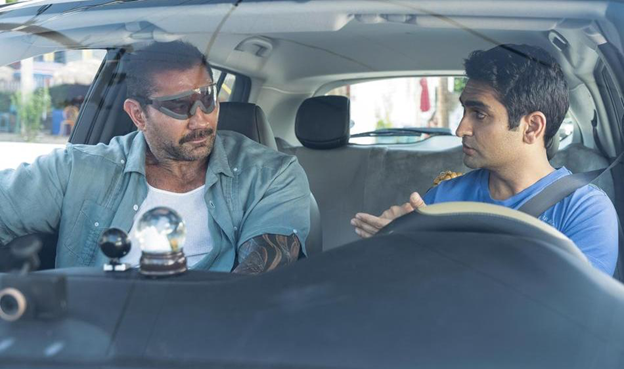
STUBER
Director: Michael Dowse
Genre: Comedy
While billed as a work-in-progress, I cannot imagine the horribly-named STUBER rising above the musty trappings of its 2011-styled comedy cliches. In no way is STUBER attempting to be the future of comedy, its retrograde celebration of violent cop-saves-the-day machismo countering the general tenor of American humor, but also, weirdly, star Kumail Nanjiani’s outspoken liberal Twitter-activism. Any instant there’s a self-righteous political statement to be made, Kumail has consistently raced to the keyboard since the turn of the decade; there’s no way the troubling takeaways of STUBER will be a great look for him. Male Generation Y filmmakers and geeks want the pastiche and politics of the 1980s again so badly, and STUBER delivers every noxious, pandering, mongering bit of it. Kumail’s landing punchlines by frantically yelling or sinking into beta-male qualities, while co-star Dave Bautista fumbles in crafting a comedic persona without the aid of body paint or a clear schtick. The two have chemistry, but one brewed from seemingly self-acknowledged pressure: “if we aren’t funny, we will have wasted millions of dollars.” Director Michael Dowse spent much of the premiere Q&A taking great pride in the film’s action set pieces, and they’re certainly not bad: having THE RAID’s Iko Uwais as your main antagonist is a huge plus, but having Bautista try to eliminate him by throwing a room service table down a balcony is an even huger plus. A climactic brawl in a sports store is the film’s piéce de résistance, a gag so prolonged and so silly in its efforts to elongate itself that it momentarily defibrillates STUBER into very welcome MACGRUBER-esque nonsensicality. Part family comedy, part violent action film, part raunchy buddy comedy, and part product placement, STUBER sure feels out-of-touch, but it also feels terrifyingly of the zeitgeist, this four-quadrant-feeding nothing-burger of a streaming title designed from the ground-up to have a unique thumbnail that matches a data-snatched user’s browsing habits. [Kevin Cookman]
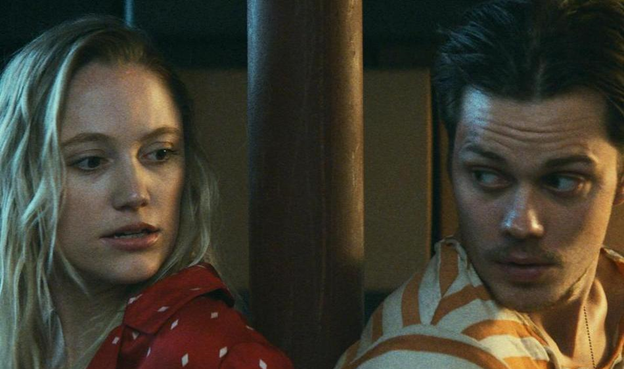
VILLAINS
Director: Robert Olsen and Dan Berk
Genre: Thriller
Given how seasoned this cast is, it should have been no surprise how much disgusting fun VILLAINS was going to be. Maika Monroe and Bill Skarsgård play coked-out amateur criminals Jules and Mickey, who after robbing a gas station, ironically forget that they’re out of gas. The two stumble upon a mysterious manor which they promptly break into with the intent of siphoning some gasoline, as well as stealing anything valuable they can find. Taken aback, they discover in the basement a chained-up little girl in tattered clothes. Mickey freaks but Jules convinces him to do at least one thing right for a change, but as soon as they try to set her free, the manor’s residents return. They’re met by an older couple seemingly frozen in time, with dashing Southern gentleman George, played fantastically by the underrated Jeffrey Donovan, and his deceivingly sweet wife Gloria, played equally great by Kyra Sedgwick. They calmly try to hash out their situation, all of them villainous ne’er-do-wells on the edge, but everything quickly goes haywire. What transpires between the five of them is a disturbing tale of what one would do for love bolstered by a witty, tight script that isn’t reliant on, but totes some grotesque action scenes that audiences will not be able to look away from, try as they might. A welcome shock to the system, VILLAINS should put both Olsen and Berk on watch as talented up-and-comer directors. [Alexander Larios]
















Comments